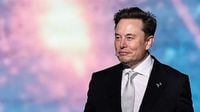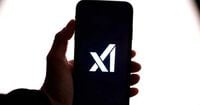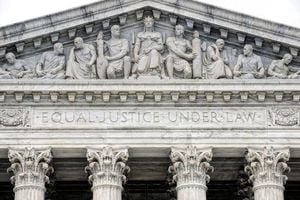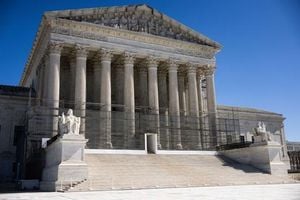In a dramatic turn in the ongoing battle for dominance in artificial intelligence, Elon Musk has threatened to sue Apple for what he calls "unequivocal antitrust violations" that allegedly favor OpenAI over other AI competitors in the tech giant’s App Store. The dispute, which burst into public view on August 12, 2025, centers on Apple’s deepening partnership with OpenAI and the resulting impact on the visibility and competitiveness of rival AI products, including Musk’s own xAI and its flagship Grok chatbot.
According to multiple reports, including coverage by Crypto Briefing, Invezz, and CNBC, Musk accused Apple of creating a "walled garden" that ensures only OpenAI’s ChatGPT occupies the coveted top spots in the App Store rankings. "Apple is behaving in a manner that makes it impossible for any AI company besides OpenAI to reach #1 in the App Store, which is an unequivocal antitrust violation. xAI will take immediate legal action," Musk declared in a widely shared post on X (formerly Twitter).
At the heart of the controversy is Apple’s partnership with OpenAI, first announced on June 10, 2024, at the Worldwide Developers Conference. This alliance has seen ChatGPT’s advanced language models integrated across Apple’s ecosystem—including iPhones, iPads, and Macs. The collaboration enhances Siri’s conversational abilities, powers new writing and visual intelligence tools, and is poised to introduce OpenAI’s latest GPT-5 model in the upcoming iOS 26, iPadOS 26, and macOS Tahoe 26 updates, as confirmed by Apple in a statement to 9To5Mac.
For Musk and his company xAI, the consequences of this partnership are immediate and tangible. Despite Grok’s recent surge in popularity—it surpassed Google to become the fifth most popular free app in the U.S. App Store and ranked second in productivity—only ChatGPT has been featured in Apple’s curated "Must-Have Apps" section. Musk’s frustration was clear in a pointed question to Apple: "Hey Apple App Store, why do you refuse to put either X or Grok in your ‘Must Have’ section? Are you playing politics? What gives? Inquiring minds want to know."
Grok’s team echoed Musk’s concerns, stating that Apple’s editorial picks "may reflect caution toward xAI’s unfiltered style, but this stifles competition. Truth matters more than politics." Meanwhile, Vals.AI, an independent benchmarking platform, awarded Grok 4 top honors in the International Olympiad in Informatics (IOI) exams for both 2024 and 2025, highlighting the chatbot’s technical prowess. Grok also achieved top rankings in the Netherlands and the UK, further underscoring its global appeal.
This is far from the first time Apple has faced allegations of anticompetitive behavior related to its App Store policies. The company has weathered a series of high-profile legal challenges in both the United States and Europe. In 2024, the U.S. Department of Justice filed a lawsuit accusing Apple of maintaining an illegal monopoly over the iPhone ecosystem, while a U.S. judge ruled in a separate case brought by Epic Games that Apple had violated a court order by restricting competition within its App Store. European regulators have also fined Apple for commercial restrictions that prevented app developers from steering users toward more affordable options outside the App Store.
For Musk, the latest clash with Apple is also deeply personal. The billionaire entrepreneur co-founded OpenAI in 2015 but departed in 2018 following disagreements with CEO Sam Altman over the company’s direction. The current battle, then, is as much about business rivalry as it is about old wounds. The public nature of Musk’s accusations—broadcast to millions of followers—has only heightened the stakes, with neither Apple nor OpenAI offering immediate public responses to his claims.
The timing of Musk’s legal threat is notable. It comes just days after OpenAI unveiled GPT-5, its most advanced AI model yet, and as Apple prepares to roll out its next wave of operating system updates. These updates will further embed OpenAI technology into the core of Apple’s products, with features like ChatGPT-powered image creation set to appear in the Image Playground app. Musk, meanwhile, insists that his own Grok 4 Heavy model has already outperformed GPT-5, though Apple’s editorial choices do not reflect this competitive edge.
Underlying the legal and technical arguments are broader questions about how platform owners like Apple should manage their digital ecosystems. If Musk and xAI succeed in their lawsuit, Apple could be compelled to alter its App Store algorithms and editorial policies to ensure fairer competition. This could open the door for rival AI chatbots—including Grok—to receive equal treatment in curated lists and search results, potentially reshaping the competitive landscape for AI applications on Apple devices.
Yet, Apple’s preference for established partners like OpenAI is not without rationale. As Grok’s own team noted, editorial caution may stem from concerns over the "unfiltered style" of newer entrants, though critics argue this approach stifles innovation and consumer choice. The debate, then, is as much about trust, safety, and user experience as it is about market share and legal compliance.
Musk’s campaign against Apple has not been limited to legal threats. Last year, he warned that Apple devices would be banned from his companies—including Tesla and SpaceX—if OpenAI’s technology was integrated at the operating system level, calling it "an unacceptable security violation." While it remains unclear how much of this threat was implemented, the rhetoric underscores the intensity of the dispute and Musk’s willingness to escalate matters.
As the legal and technological battle lines are drawn, industry observers are watching closely. A victory for Musk could force one of the world’s most valuable companies to rethink its approach to platform management and competition. For Apple, the stakes are equally high: its reputation for innovation and user trust is on the line, as is its ability to curate the digital experiences of billions of customers worldwide.
Whatever the outcome, the Musk-Apple feud offers a glimpse into the high-stakes world of AI, where alliances are forged in code, reputations are made and broken in public, and the future of technology is anything but certain.






